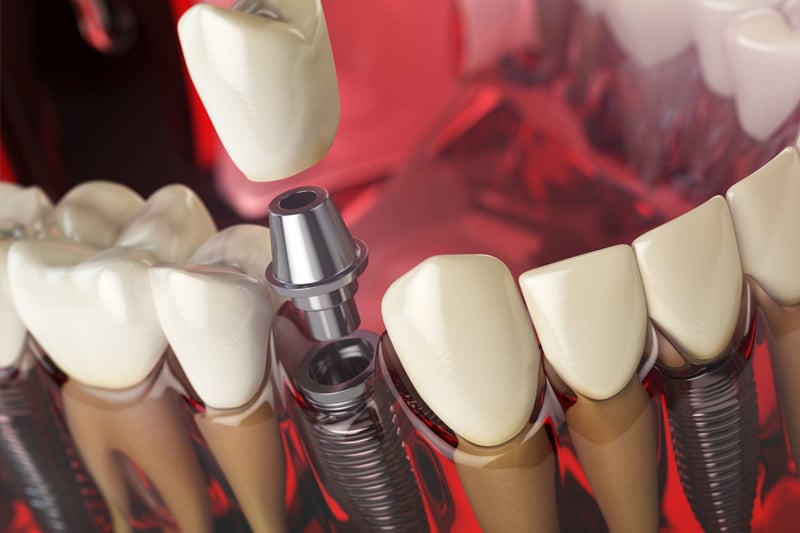Dental tourism to Mexico has become increasingly popular among Americans seeking affordable dental care, particularly for costly procedures like dental implants. However, the question of safety often arises when considering cross-border healthcare. In this comprehensive guide, we’ll explore the safety aspects of getting dental implants in Mexico, addressing common concerns and providing valuable insights to help you make an informed decision.
Understanding Dental Implants
Before delving into the safety of dental implants in Mexico, it’s essential to understand what dental implants are and why they are a popular choice for tooth replacement. Dental implants are artificial tooth roots made of titanium or zirconia that are surgically placed into the jawbone to support a replacement tooth or bridge. They offer a long-lasting and natural-looking solution for missing teeth, restoring both function and aesthetics.
The Cost Advantage of Dental Implants in Mexico
One of the primary reasons why Americans seek dental implants in Mexico is the significant cost savings. According to . Similarly, .
Safety Concerns and Addressing Them
While the cost savings are undeniably attractive, safety should be the top priority when considering dental implants in Mexico. Here are some common concerns and how they can be addressed:
1. Quality of Dental Care
One of the primary concerns regarding dental implants in Mexico is the quality of care provided by Mexican dentists. It’s important to note that many Mexican dental clinics, particularly those catering to international patients, adhere to stringent quality standards and employ highly skilled and experienced dentists.
According to DentaVacation, their partner clinics in Mexico prioritize quality, using materials that meet US standards for dental implants. They offer top implant brands like Straumann, Nobel Biocare, BHI Shark, and Hoissen, and utilize state-of-the-art technology such as CBCT (Cone Beam Computed Tomography), 3D scanners, CAD/CAM (Computer-Aided Design/Computer-Aided Manufacturing), dental lasers, and CEREC (Chairside Economical Restoration of Esthetic Ceramics).
2. Sterilization and Infection Control
Proper sterilization and infection control practices are crucial in any dental setting to ensure patient safety. Many reputable dental clinics in Mexico follow strict guidelines set by organizations like OSHA (Occupational Safety and Health Administration), CDC (Centers for Disease Control and Prevention), and EPA (Environmental Protection Agency) .
3. Language Barriers and Communication
Language barriers can be a concern when seeking dental care in a foreign country. However, many Mexican dental clinics that cater to international patients have English-speaking staff and dentists to facilitate effective communication. It’s advisable to inquire about the language proficiency of the dental team before scheduling an appointment.
4. Follow-up Care and Warranties
Another potential concern is the availability of follow-up care and warranties for dental implants received in Mexico. While some clinics may not offer warranties, many reputable ones provide warranties ranging from 2 to 10 years, with specific terms and conditions applied . It’s essential to discuss these details with the clinic beforehand and understand the process for seeking follow-up care, if needed.
Choosing a Reputable Dental Clinic in Mexico
To ensure a safe and successful dental implant experience in Mexico, it’s crucial to choose a reputable and accredited dental clinic. Here are some tips to help you make an informed decision:
- Research and Read Reviews: Thoroughly research potential dental clinics in Mexico by reading reviews from previous patients, checking their credentials, and verifying their accreditations.
- Seek Recommendations: Ask for recommendations from friends, family members, or online communities who have had positive experiences with dental implants in Mexico.
- Check Certifications and Accreditations: Ensure that the dental clinic and its practitioners are certified and accredited by reputable organizations, such as the Mexican Dental Association or international accrediting bodies.
- Inquire About Experience and Specialization: Inquire about the dentists’ experience and specialization in dental implant procedures, as well as the number of implants they have successfully placed.
- Visit the Clinic: If possible, schedule a consultation or visit the dental clinic in person to assess the facilities, staff, and overall professionalism.
Safety Precautions and Considerations
While reputable dental clinics in Mexico prioritize patient safety, it’s essential to take personal precautions and considerations to ensure a smooth and safe experience:
- Consult with Your Dentist: Before pursuing dental implants in Mexico, consult with your regular dentist to discuss your specific dental needs and any potential risks or concerns.
- Understand the Procedure: Educate yourself about the dental implant procedure, including the steps involved, recovery time, and potential complications.
- Follow Post-Operative Instructions: Strictly follow the post-operative instructions provided by the Mexican dental clinic to ensure proper healing and minimize the risk of complications.
- Consider Travel Arrangements: Factor in travel arrangements, accommodations, and any additional costs associated with seeking dental care in Mexico.
- Obtain Medical Records: Request and keep copies of your medical records, including X-rays, treatment plans, and any other relevant documentation.
Conclusion
Getting dental implants in Mexico can be a safe and cost-effective option for Americans seeking affordable dental care. By choosing a reputable and accredited dental clinic, following proper safety precautions, and understanding the potential risks and considerations, you can enjoy the benefits of high-quality dental implants at a fraction of the cost compared to the United States.
Remember, your oral health is a valuable investment, and it’s essential to prioritize safety and quality over cost alone. With thorough research, due diligence, and open communication with your dental care providers, you can make an informed decision that aligns with your dental needs and financial considerations.








